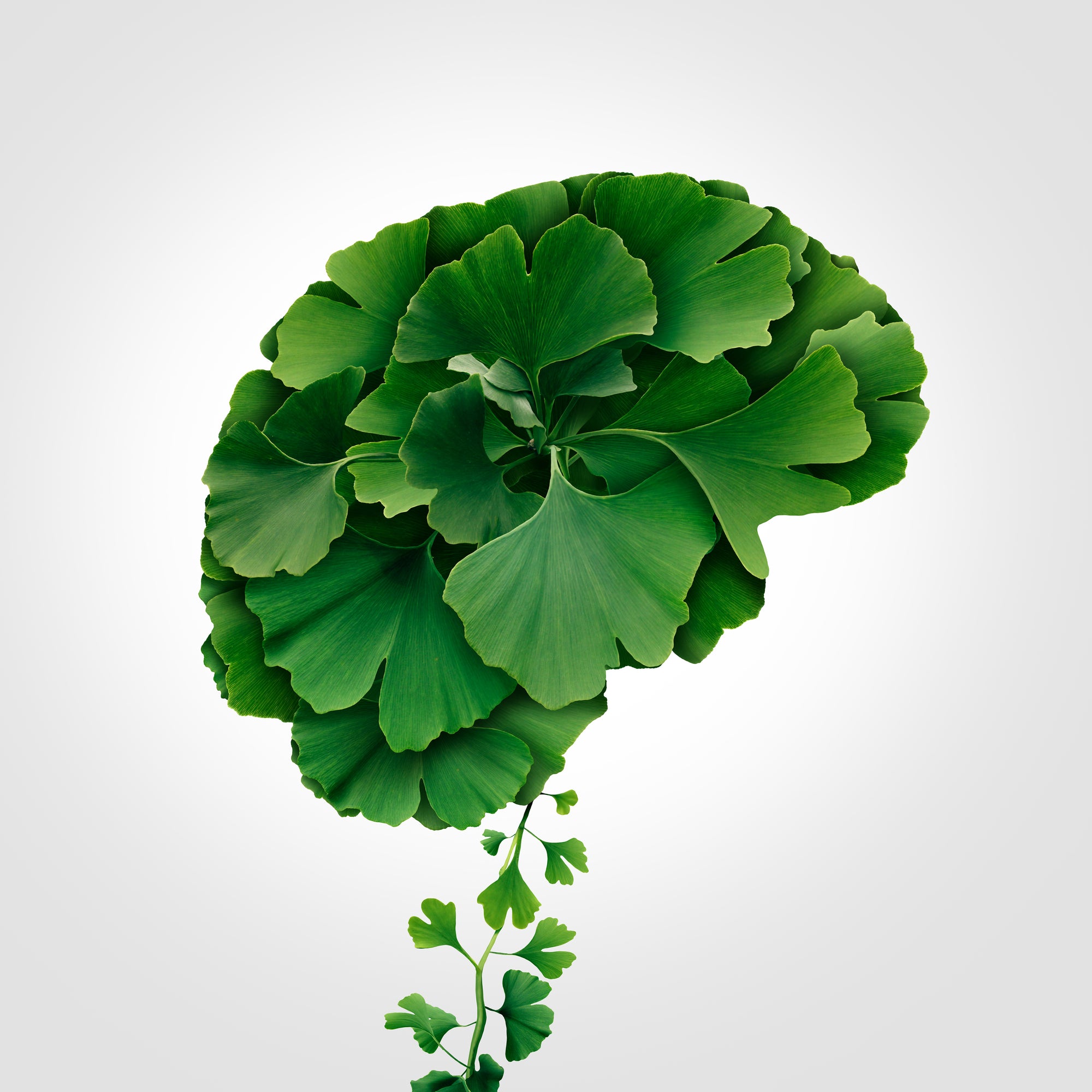
At some point, we all face the feeling that we’re losing our edge. We may feel slower, less mentally sharp, or unable to withstand as much physical or emotional stress as we once did.
When this happens, we’ve got options, and one of those options is trying a natural nootropic supplement. The team at JOYÀ is committed to giving you all the information you need to make the best, most health-conscious decisions for yourself.
We’ll explain what nootropics are and give you seven natural options so you can choose the ones that are best for you.
What Are Nootropics?
Nootropics, also known as “smart drugs,” are substances that are considered cognitive enhancers and performance boosters. These are used to improve mental performance and support brain health.
How Do Nootropics Work?
Nootropic medications work to improve cognitive function and, as a result, improve cognitive performance. They’re available in both prescription and natural forms. The active compounds modulate certain neurotransmitters in our brains (like dopamine and noradrenaline) that support our ability to focus and learn.
Nootropics are useful for everyday boosting of brain power, helping to counter age-related cognitive decline, as well as helping people who have cognitive impairments like Alzheimer’s disease.
What Are the Benefits of Nootropics?
Taking a nootropic supplement is at the top of every biohacker’s daily to-do list, and there’s a good reason why. These compounds improve mental clarity, help support short-term memory, regulate healthy mental function, and even support a more balanced level of energy.
Are There Any Side Effects of Taking Nootropics?
There are risks associated with taking prescription nootropic medication. Many prescription nootropics (like Adderall and Ritalin, for example) are stimulants, which carry a risk of dependence. Additionally, these medications alter the levels and functions of neurotransmitters in the brain.
For someone who has a cognitive deficiency, prescription nootropics can improve their lives. But for those who don’t, it’s best to talk to your doctor about the benefits. You should never take a prescription nootropic without the approval and supervision of a qualified healthcare professional.
Natural nootropics, however, are effective brain boosters and have relatively few (if any) side effects. Caffeine, for example, is a natural nootropic that is used by almost everyone. Arguably, caffeine carries some side effects, like jitters and increased heart rate, but most of us still use it safely and effectively.
Now, let’s dig into seven other natural nootropics that can help support your brain cells, boost your memory and learning functions, and help you regain your mental edge.
7 Natural Nootropics for the Brain
Wanting to regain your edge is a worthy goal. Here are our top seven favorite natural nootropics that will help build your brain power.

Ashwagandha
Both Traditional Chinese Medicine (TCM) and Ayurvedic medicine have relied on this adaptogenic herb for hundreds of years. Traditionally used to support mental clarity and focus during meditation, ashwagandha helps regulate your body’s natural stress response.
Ashwagandha has been used specifically in Ayurvedic medicine to support learning and memory. As it turns out, science supports this use. A 2017 study showed that ashwagandha is useful in supporting memory, executive function, and attention.
The benefits of ashwagandha are best experienced when it is taken over time. Adding ashwagandha to your day is easy. We include an effective dose in our Balance Functional Chocolate.

Rhodiola rosea
Revive with rhodiola. This stress-fighting adaptogen helps support natural energy levels and increases blood flow, helping oxygenate brain cells. While the benefits of rhodiola rosea spill over to the entire body, this herb is particularly useful in protecting against mental fatigue and improving cognitive performance.
Because rhodiola is packed with antioxidants, it’s also able to help protect against oxidative stress from free radicals.
You can find rhodiola in our Focus Functional Chocolate.

Panax ginseng
Ginseng has been a favorite for increased energy and stamina for millennia. It’s so commonly available that you can even find it lining up counters at gas stations, promising untapped energy to weary travelers.
Research supports that Panax ginseng, in particular, does indeed have a regulatory effect on energy levels and a cognitive enhancing effect on the brain. In studies, Panax ginseng helped improve cognitive function by supporting working memory.

Bacopa monnieri
This flowering plant, also known as brahmi or water hyssop, can also support healthy brain function and our ability to learn and retain information. In one study, medical students were given Bacopa monnieri supplements for six weeks. The results proved that Bacopa monnieri has potential to improve cognitive functions.

Ginkgo biloba
Ginkgo is one of our favorites for supporting brain function. It’s been around for millennia and has prehistoric roots. It’s been extensively studied for its effects on Alzheimer’s patients, but it also has benefits for the general population.
The exact reason why ginkgo helps enhance cognitive performance (specifically as it relates to attention and memory) is still unknown. One theory is that it increases blood flow to the brain and that it supports glucose metabolism in brain cells.
You can get going with ginkgo by adding JOYÀ’s Focus Functional Chocolate Bars (also featuring rhodiola) to your daily lineup. More chocolate and better brain function? Who’d argue with that life hack?

L-Theanine
L-theanine is an amino acid that is found in green tea leaves. Its nootropic properties include helping reduce the effects of stress disorders, improving mood, increasing mental clarity, and even helping to regulate sleep patterns.
A great way to get the benefits of L-theanine is by swapping out your morning coffee latte with a matcha latte. Matcha is a highly concentrated form of green tea that contains L-theanine and caffeine. The result? A state of calm focus that many people prefer to plain caffeine, which can lead to jitters and an afternoon crash.
A number of studies have found that the effects of L-theanine in combination with caffeine on cognition and learning ability include improvements in attention, reaction time, alertness, reduced mental fatigue and overall alertness.

Lion’s Mane Mushroom
Last but certainly not least on our list of natural nootropics is lion’s mane mushroom. This pom-pom-shaped mushroom has powerful antioxidant properties and boasts the added benefit of providing immune support. It has also been used for thousands of years by Buddhist monks to enhance brain power during meditation.
Studies suggest that lion’s mane helps protect neurons by stimulating nerve growth factor (NGF), a particular protein that is necessary for the development of sensory cells.
Want to roar with the lions? Stock up on JOYÀ’s Defend Functional Chocolate.
What Else Can You Do To Support Brain Function?
Of course, even taking the best nootropic dietary supplements isn’t the only piece of the brain-health puzzle. Healthy individuals can take other steps to protect against memory loss and enjoy even more cognitive benefits.

Regular Exercise
It’s good for your muscles, mind, and even your memory. In studies of Alzheimer’s patients, exercise proved to be useful in helping support neural plasticity and helped improve communication between neural receptors.
In another promising study, women who lived sedentary lifestyles demonstrated a marked improvement in self-reported anxiety and stress, verbal ability, and episodic memory when high intensity interval training (HIIT) was added to their routine.
Older adults, especially, can counter cognitive decline and gain mental health benefits from exercise, which helps keep the brain sharp and increase blood flow.
Get Enough Sleep
Your brain does its in-house cleaning when you sleep. While you rest, the brain stores learned information, organizes memories, moves short-term memory into long-term, and even changes its structure to account for injuries or illness.
During sleep, the brain also eliminates toxins, which is essential for helping it to function properly. If you have trouble getting high-quality sleep, consider adding a calming adaptogen (like ashwagandha or reishi mushroom) to your health stack.
Eat a Balanced Diet
Choose lean proteins, veggies, and healthy fats (including in particular foods rich in omega-3 fats and low in omega-6 fats such as fish, flax seeds and chia seeds), and avoid foods that don’t support your brain health. These include highly processed foods, refined carbohydrates, refined sugar, trans fats and seed oils, which can actually have harmful effects on your cognitive health (and your health in general).
Be sure to stay hydrated, as one of the signs of dehydration is mental fatigue and fogginess.
The Takeaway
Boosting your brain power may be as simple as adding a natural nootropic to your daily routine. However, it can feel overwhelming to add one more item to your daily to-do list, even if it helps support your ability to do more and remember more.
JOYÀ makes it easy to remember to take care of your brain by giving you access to crave-able, chef-crafted Functional Chocolates that keep your brain and body fueled during the day.
